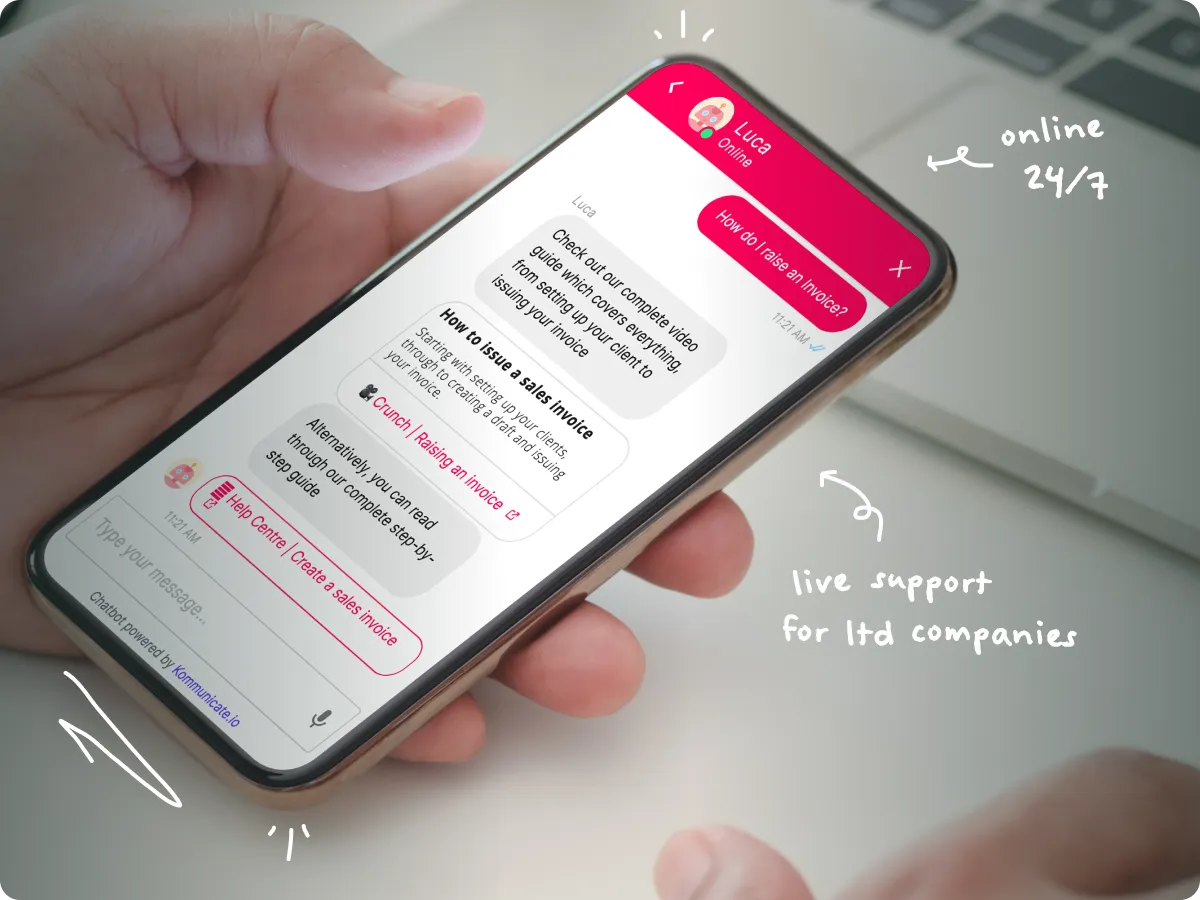You may not know if your business is operating as an employment intermediary, and we couldn’t blame you. But if you supply more than one worker to an end client through a Personal Service Company or provide workers services (as an employer), it’s extremely important that you know if you’re affected by rules concerning false self-employment.
Businesses (if they’re an employment intermediary) need to be aware of the government’s rules. If the rules apply, they’ll need to deduct PAYE (pay-as-you-earn) and National Insurance Contributions (NICs) from the worker’s pay. On occasions where the intermediary doesn’t operate PAYE, special reporting is required to ensure that workers don’t slip through HMRC’s net.
Why were the employment intermediary rules introduced?
The government introduced legislation to clamp down on the use of ‘false self-employment’ models, where workers and employers avoid tax they should be paying, and where the employer also avoids their other employment responsibilities.
When is a business classed as an intermediary?
According to the government, an intermediary is:
- a person who makes arrangements for an individual to work for a third person, or
- a person who makes arrangements with an individual to be remunerated for work done for a third person.
Who do employment intermediary rules affect?
The rules came into effect on 6th April 2014 and affect the following:
- Self-employed contractors who are employed via ‘intermediaries’ and who currently pay taxes as a self-employed person
- The ‘intermediary’ businesses themselves.
What do businesses need to consider?
Businesses need to consider:
- Do they use off-payroll workers (subcontractors) to fulfil customer contracts?
- Are payments made to workers without deductions for PAYE and NICs?
If the answer to either of these is yes, you might be classed as an intermediary.
Naturally, employment agencies, umbrella companies and some payroll companies will be intermediaries. However, it’s a very broad definition.
You must send an Employment Intermediary Report to HMRC if at any time in a reporting period (quarterly) the following conditions all apply.
You:
- are an agency or intermediary that supplies the services of individuals to a client
- have a contract with a client or clients
- provide more than one worker’s services to one or more clients because of your contract with those clients
- provide the worker’s services in the UK - or if the services are provided overseas, that the person is resident in the UK
- make one or more payments for the services (including payments to third parties)
So, that could include consulting services companies, facilities management, the events industry, the hospitality sector, the care sector, the audio-visual Industry – basically anyone who is providing workers to another business. It also includes personal service companies who subcontract and/or supply more than one worker to a client.
Where you haven’t supplied workers in a specific quarter, you must file a ‘nil report’ by the deadline date.
When there’s more than one intermediary in the chain, it’s the intermediary that supplies the workers to the client who must file the report with HMRC if PAYE isn’t being operated.
If the intermediary is supplying workers to another intermediary, they need to provide details of the workers to that intermediary, rather than reporting it to HMRC.
Example
Consultancy Services Ltd supplies three workers to a client. There’s a contract in place to provide consultancy services. Consultancy Services Ltd isn’t operating PAYE and is paying the workers as subcontractors. Consultancy Services Ltd needs to submit an Employment Intermediary Report.
No report is needed for businesses that introduce contractors to clients, those that supply workers to other intermediaries, or businesses that provide services at sea in the oil or gas industry on the UK continental shelf.
Who doesn’t it include?
When PAYE isn’t operated for the workers, the intermediary needs to report to HMRC. This report must include details for overseas workers who pay UK tax or details of payments made where the worker is either providing their services in the UK or temporarily, abroad.
The report does not require any details for workers who:
- don’t have to pay tax in the UK
- are your own employees
- you don’t find work for in a reporting period or who aren’t paid during a reporting period
- provide their services entirely from their own home or premises not managed by the client - unless they have to because of the services and work they provide to the client
- are actors, singers, musicians, other entertainers, or a fashion, photographic or artist models.
Limited companies or personal service companies that supply a client with one worker don’t need to file a report. However, if the personal service company supplies more than one worker and doesn’t operate PAYE, they’ll need to file a report to HMRC.
The Employment Intermediary Report must include the following information:
- The intermediary’s full name, address and postcode
- The worker’s personal details
- Details of the work and payments.
The report must be filed using HMRC’s reporting template. Once completed, the report needs to be uploaded and submitted online. You can send up to 13 reports at a time.
The intermediary must keep records to support the information provided to HMRC.
There are specific rules for reporting the payments of workers within the Construction Industry Scheme (CIS) to HMRC. When workers within CIS are supplied to an end client, it’s the gross payment before deductions, inclusive of VAT, that must be reported to HMRC.
A report has to be sent by each reporting deadline. The reporting periods and submission deadlines are as follows:
What happens if my reports are late?
If a report is made late, penalties are charged automatically - the amount depends on the number of late reports in a 12-month period:
- £250 for a first offence
- £500 for a second offence
- £1,000 for subsequent offences.
The penalty clock resets if 12 months have elapsed between late reports but continued failure to send reports on time may face further penalties of up to £600. The intermediary has a right of appeal to HMRC against penalties that are considered to be incorrect.
Our website aims to provide information of interest to readers. While every effort has been made to ensure accuracy, information contained on the site may not be complete, may have changed or may not be relevant to or appropriate for your circumstances. Readers must not use the information without seeking professional advice. The information is not intended as legal, accounting, financial or tax advice. E-Crunch Ltd, Crunch Accounting Ltd, related organisations, employees, and directors are not liable to you or anyone else for decisions or actions resulting from placing reliance on the information contained in the site.
Our website may contain links to other websites maintained by third parties. We do not control these sites and are not responsible for them or their content.
.svg)




.jpeg)




